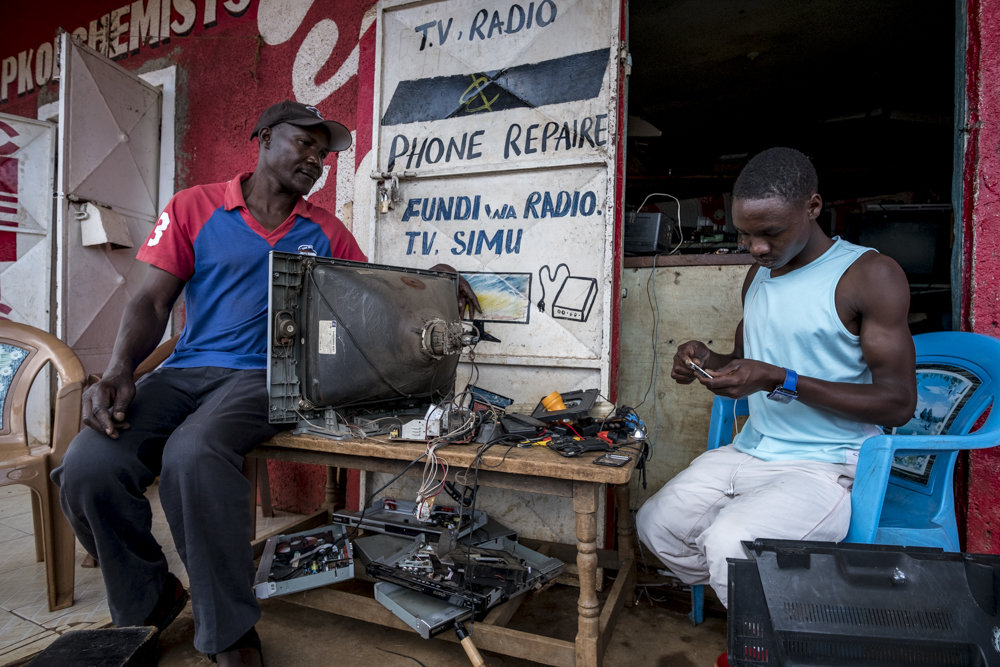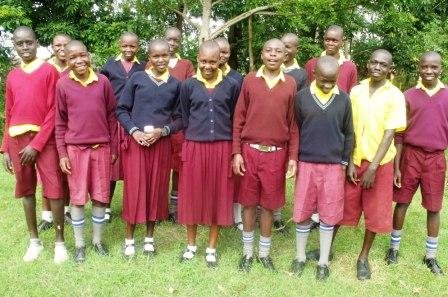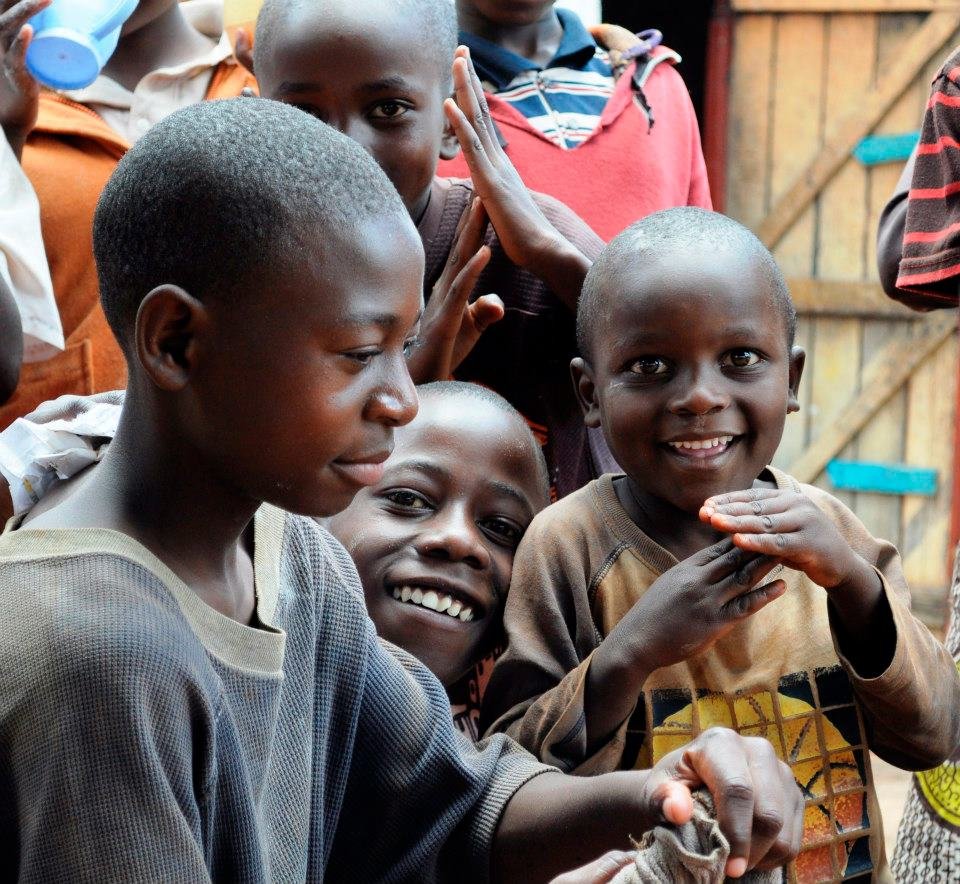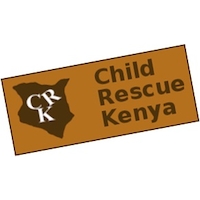




Child Rescue Kenya assists children in need while developing communities to better care for their own children through integrated development initiatives. The organisation operates in Trans-Nzoia County in Kenya. CRK facilitates the rehabilitation of street-connected children, and other abused or neglected children, by encouraging close links between the community, the project and the child. Multifaceted activities combine child rehabilitation centres with community development initiatives such as: a. Community Health clinics - both preventive and curative services. b. Training in home-based income-generating activities. c. Sports facilities to identify and nurture talents of young peop... read more Child Rescue Kenya assists children in need while developing communities to better care for their own children through integrated development initiatives. The organisation operates in Trans-Nzoia County in Kenya. CRK facilitates the rehabilitation of street-connected children, and other abused or neglected children, by encouraging close links between the community, the project and the child. Multifaceted activities combine child rehabilitation centres with community development initiatives such as: a. Community Health clinics - both preventive and curative services. b. Training in home-based income-generating activities. c. Sports facilities to identify and nurture talents of young people. d. Advocacy campaigns on Family health and HIV/AIDS, children rights, domestic violence and substance abuse among young people. e. Bio- intensive farming activities targeting vulnerable families. f. Vocational training and formation of youth associations. CRK's Vision is a society where children are enjoying their basic rights and leading a dignified life. CRK's Mission is to assist children in need, while achieving positive change through initiatives that empower families and respect for children rights. Our Objectives are: 1.Child Rescue and Support. A strategic holistic approach emphasises improved child welfare within projects and well coordinated interventions. Within this pillar strategic objectives and strategies include: 1.1) Continued Rescue and Support of vulnerable and unaccompanied children. 1.2) These strategies ensure that rescued children access basic necessities such as the provision of shelter, meals, clothing and toiletries, psycho-social support and Counselling, preventive and curative medication, sports and recreation, and catch-up education education. 1.3) Increased Early Street Interventions aim to curb the influx of children on the streets through the daily identification of new street arrivals, referral to Child Protection Unit at the police and local administrators, and increased advocacy on child rights. We hope to see a reduction in child abuse cases and advocate respect for children's rights through: advocacy campaigns, attendance at network meetings, facilitating sensitisation workshops and ensuring children's participation in awareness creation. 1.4) Increased access to primary and secondary education and enhance early childhood education through enrolment in public schools through the provision of resources and fees required for school attendance, the refurbishment of libraries for non-formal catch-up education at all project centres. 2. Youth Empowerment CRK seeks to empower young people; those living and working on the streets and those in the slums, through formation of self -help groups or associations, facilitation to vocational training and formal education to improve their livelihoods through: 1) Increased access to formal and non formal education and training and support to enrol in public schools and vocational training. Facilitation of peer-to-peer counselling on issues such as drug use and the supported development of self help groups / associations. CRK nurtures talent through sport, provides health and sex education (inc. testing for STIs), and builds capacity for enterprise development. 2 Youth engagement in micro- businesses. CRK supports trained young people with business start up kits and routinely monitors the progress of the started ventures. We encourage and assist young people to get national identity cards for opening bank accounts etc. and link them to government development funds e.g youth fund. 3 Family Support CRK works with families to build therapeutic relationships, addressing issues affecting children at home, helping families to initiate income-generating activities and practice bio-intensive agriculture for those with small farms to improve their food security. In addition, CRK: 3.1) Strengthen family relationships through routine family visits, family counselling, advocacy campaigns on issues such as domestic violence, education on HIV/AIDS and reproductive health. We also provide subsidised medical services and referral linkages for support. 3.2) Improved household incomes involve the identification of vulnerable families to support (with a child or children), training on micro-business initiatives and marketing, support for trained beneficiaries with business start up kits and routine business progress monitoring 3.3) Improved food production through organic farming involves the identification and training of families on organic farming, the provision of start up farm inputs, the development and maintenance of demonstration plots as resource centres, sensitisation and training on environmental conservation, organising exposure tours as learning tools and promoting proper soil management practices through modern farming methods. 4. Organisation Development We endeavour to make CRK a strong and effective organisation, able to deliver its mandate within its core areas of operation. This is achieved through: 4.1) Enhanced staff motivation and performance in which Human Resources Policies and Procedures are reviewed regularly and the management team enforce and implement these policies. Contingency and disaster plans are developed and professional staff are recruited for core functions such as Human Resource and Resource Mobilisation. CRK will also strengthen and sustain policy on HIV/AIDS, build staff capacity in relevant project areas, continue to ensure board development and policy formulation, and redefine roles and responsibilities of staff to enhance performance. 4.2) Improved record keeping will involve the development of a back-up system for all organisational documents and the routine dissemination of information to staff and partners. 4.3) Increased Resource Mobilisation will involve the diversification of proposals seeking funding, the development of a donor profiling system and the engagement of consultancy services. CRK will also develop partnerships and set up a resource mobilisation team of staff members. 4.4) Improved service delivery in project areas will involve the generation of adequate funds for administration and project coordination, the routine monitoring and evaluation of projects, encouragement of transparency and accountability for the management of resources, continuous documentation and reporting of progress, routine review of targets and objectives, staff appraisals to ascertain performance, and the maintenance of a project vehicle for use in rural terrain.



Each of GlobalGiving’s nonprofit partners is required to send quarterly donor reports detailing the impact of their work. Here are some of their recent updates:
By Ian Wilson | Director
January is the start of the academic year in Kenya. This time it was particularly difficult for Kenyan families. We have had steadily rising inflation and just about every necessity has... Read the full report ›By Ian Wilson | Director
Changes. Changes in weather patterns. Changes in how we farm, how we live, how we think. Climate change is a reality for those of us living on the African... Read the full report ›By Ian Wilson | Director
We are happy to have ended the year on a high note. We held graduations at three vocational colleges in December. This year saw the highest number of youths completing our training project... Read the full report ›